If you struggle with falling asleep or experience frequent awakenings during the night, you're certainly not alone in your quest for a restful night's sleep. According to the CDC, one-third of adults in the United States fail to meet the recommended minimum of seven hours of sleep per night. The consequences of inadequate sleep extend beyond mere fatigue, as the repercussions of sleep deprivation are extensive.
A Consensus Statement published in the Sleep Research Society journal in June 2015 highlights that consistently getting less than the recommended seven hours of sleep each night is associated with a range of health issues. These include weight gain, diabetes, high blood pressure, heart disease, stroke, and depression. Furthermore, compromised immune function, reduced performance, and diminished concentration are among the additional consequences of inadequate sleep.
While numerous tips exist to enhance the quality of your sleep, such as stowing away your phone and establishing a soothing bedtime routine, harnessing the influence of nutrition can also play a pivotal role in aiding your sleep endeavors. You might already be aware of the sleep-disrupting potential of certain beverages and foods, such as caffeine and rich, spicy dishes. However, there's a wide array of drinks and foods that can bolster your quest for a peaceful night's sleep, and it's prudent to keep them readily available.
To provide you with valuable insights, we consulted with dietitians and delved into the latest research. Read on to discover the top eight beverages that promote a more restful slumber!
1) Tart cherry juice
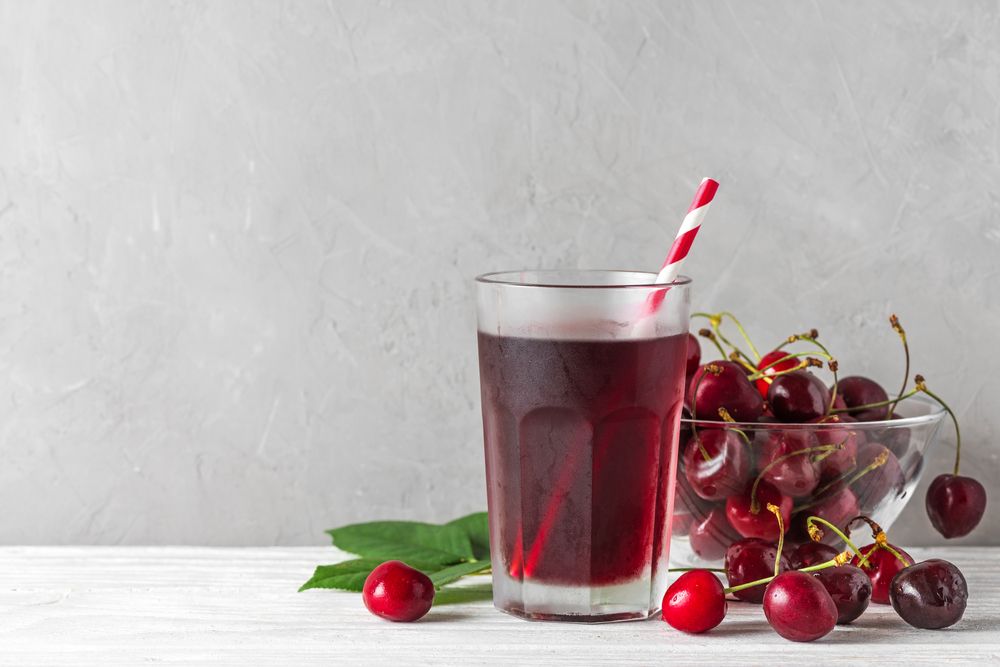
"Montmorency tart cherries, the cherries specifically present in tart cherry juice, are rich in melatonin, a natural sleep pattern regulator," explains Leah Reitmayer MS, RD, CSSD, LDN, the proprietor of Lettuce Eat Dessert.
In a small-scale study involving adults with insomnia, consuming one cup of cherry juice twice a day led to an 84-minute increase in sleep duration when compared to a placebo control period. While tart cherries are a source of melatonin, this research also revealed that cherry juice consumption heightened the presence of tryptophan, an amino acid that collaborates with melatonin to enhance sleep quality.
2) Chamomile Tea
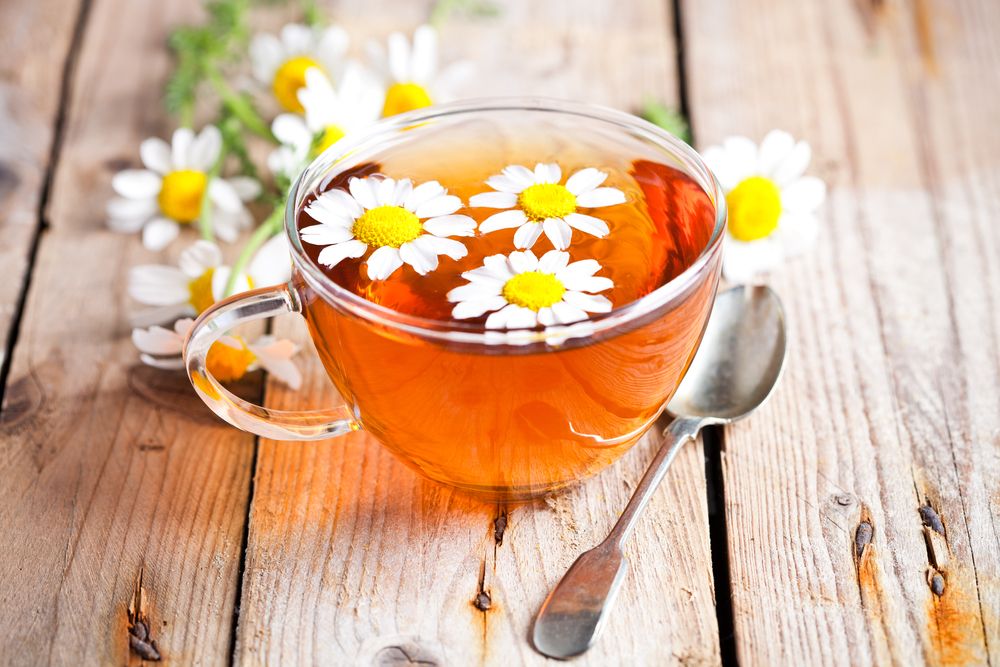
This caffeine-free herbal tea possesses natural calming attributes that can assist individuals struggling with restless thoughts and anxieties when attempting to drift into a peaceful sleep. A review published in April 2019 in Phytotherapy Research revealed that chamomile effectively alleviated symptoms associated with generalized anxiety disorder, leading to enhanced sleep quality. Additionally, chamomile serves as a digestive relaxant, potentially alleviating common sleep-disturbing issues such as gas, bloating, or indigestion.
3) Almond Milk
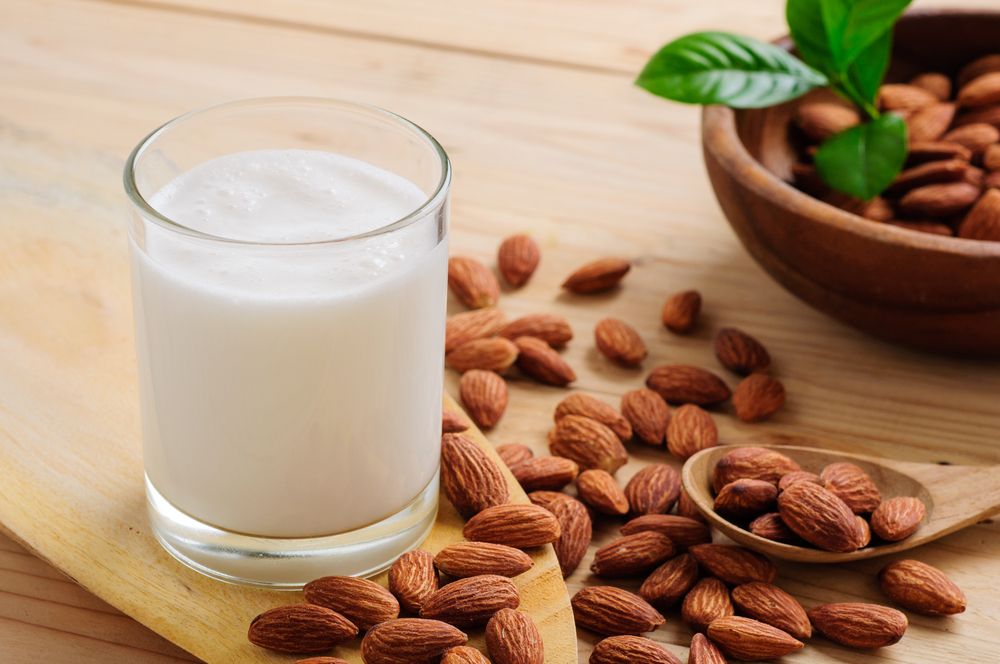
"Almond milk stands out as an effective sleep-inducing beverage, with scientific evidence supporting the role of serotonin in initiating sleep," explains Cheryl Mussatto MS, RD, LD, a clinical dietitian. Mussatto further elaborates, "Serotonin levels in our central nervous system rely significantly on tryptophan, an amino acid found naturally in both cow's milk and almond milk."
Beyond its tryptophan content, almonds also serve as a source of other sleep-promoting nutrients like melatonin and magnesium. A single cup of almond milk contributes 17 milligrams of magnesium, equating to 4 percent of the daily recommended intake (DV).
4) Decaf Green Tea
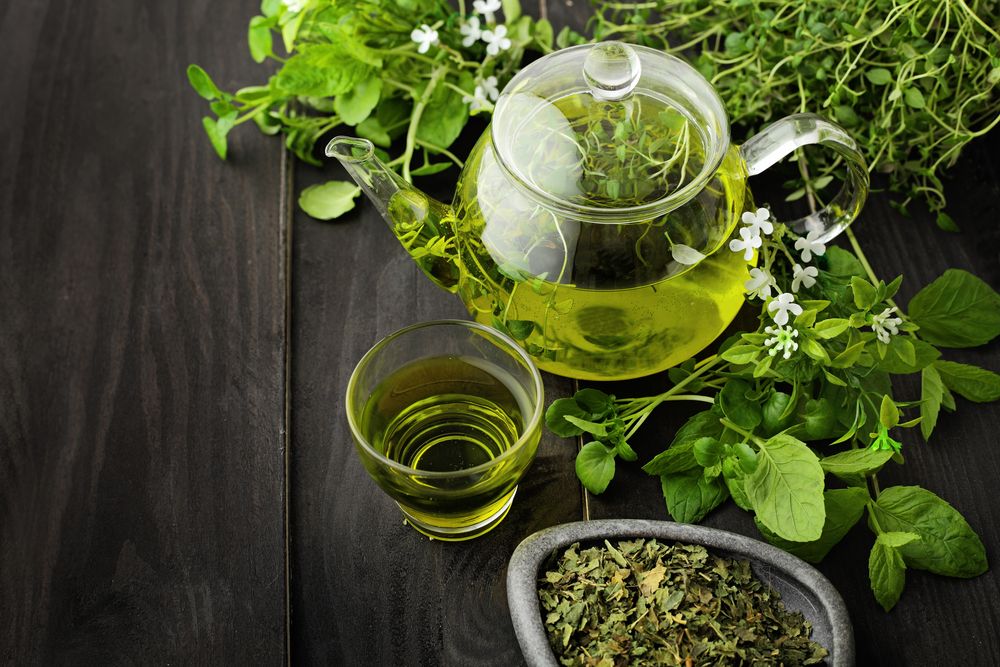
The advantages of green tea extend to promoting a restful night's sleep, particularly when opting for decaffeinated varieties. "Green tea is not only rich in antioxidants, which aid in cellular repair and protection, but it also contains l-theanine, known to reduce stress and anxiety, thus fostering a more serene sleep experience, especially with regards to the speed of falling asleep," explains Alyssa Simpson RDN, CGN, CLT, the proprietor of Nutrition Resolution in Phoenix, AZ.
In a small-scale study from October 2019, published in Nutrients, individuals who consumed 200 milligrams of l-theanine daily experienced decreased sleep latency, reduced sleep disturbances, and a decreased need for sleep medication when compared to the placebo group. While a typical cup of green tea contains approximately 8 milligrams of l-theanine, incorporating it into your evening routine may offer sleep-enhancing benefits.
5) Milk
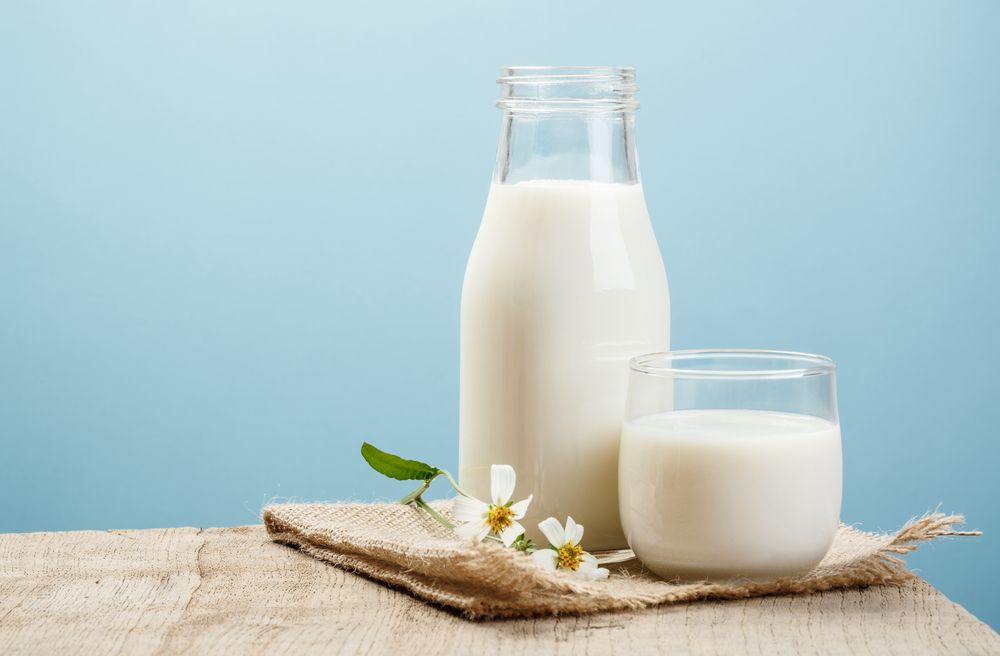
The age-old remedy of sipping a warm glass of milk before bedtime does indeed hold merit. Karman Meyer, a registered dietitian and author of "Eat To Sleep: What To Eat & When To Eat It for a Good Night's Sleep," explains, "While milk's calcium content benefits our bone and heart health, it plays a crucial role in the production of melatonin, the hormone that promotes sleep."
Moreover, Meyer adds, "A glass of milk also supplies magnesium and potassium, which can alleviate muscle cramps, a common cause of sleep disruptions, particularly among older individuals." A single 16-ounce serving of low-fat milk provides 13 percent of the daily value (DV) for magnesium and 16 percent of the DV for potassium.
6) Ashwagandha Tea
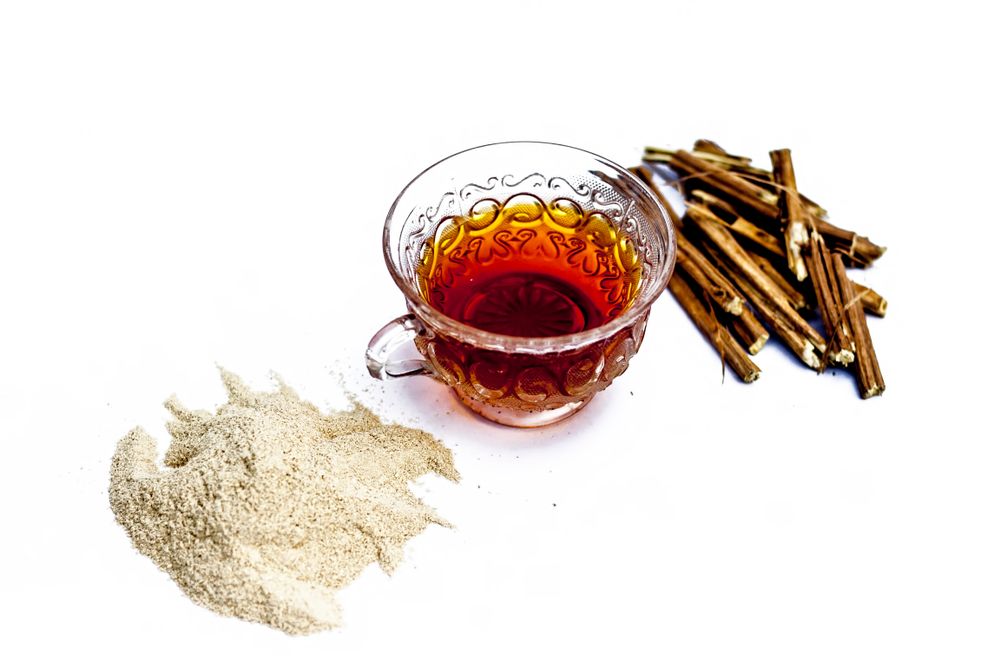
Incorporating a cup of Ashwagandha tea or introducing ashwagandha extract into your evening routine could potentially lead to long-term improvements in your sleep quality. Ashwagandha, an herb with a long history of stress alleviation and sleep induction, has garnered recent research attention, indicating its potential to aid individuals with mild sleep disturbances and those grappling with insomnia. This herb has shown promise in reducing the time required to fall asleep, enhancing the duration of restful sleep, and overall sleep duration.
It's worth noting that studies, including the one conducted over eight weeks mentioned, often explore the benefits of ashwagandha over several weeks to months, implying that the advantages may not manifest immediately but rather accrue gradually with prolonged use.
7) Kefir
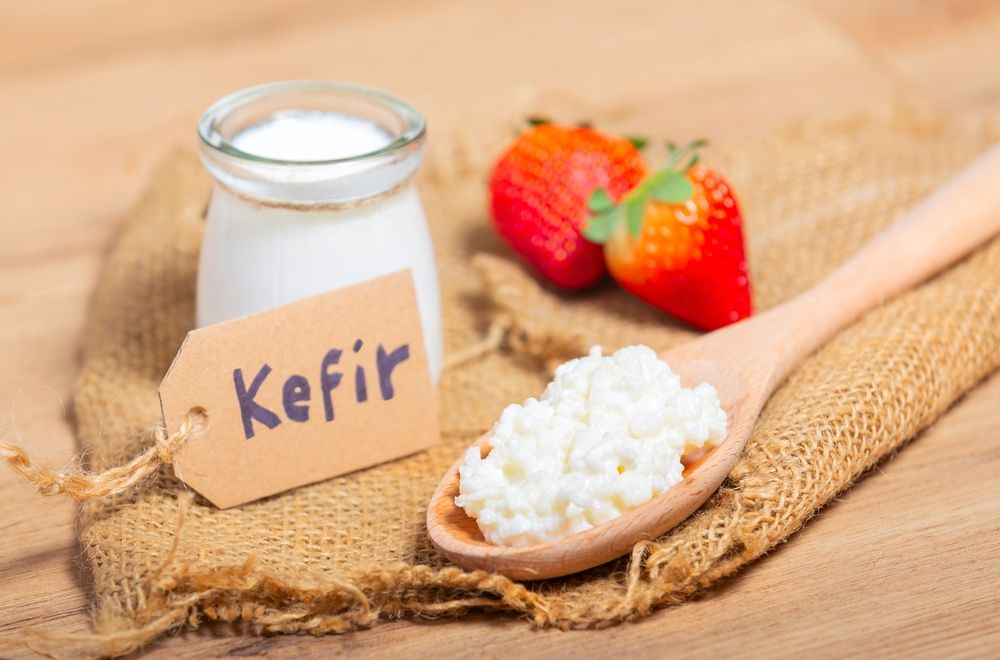
This tart and tangy yogurt beverage boasts numerous sleep-enhancing attributes, ranging from amino acids like tryptophan to a substantial concentration of beneficial bacteria that contribute to a healthy gut microbiome. In accordance with a study published in October 2019 in PLoS One, a diverse gut microbiome is associated with improved sleep efficiency and overall sleep duration. This correlation likely stems from the capacity of specific gut bacteria to synthesize serotonin, a neurotransmitter that promotes sleep.
Caroline Margolis, RDN, a registered dietitian and advocate for Lifeway Foods, explains, "Kefir not only serves as a natural source of tryptophan, a precursor to both serotonin and melatonin, but it is also abundant in probiotics that help maintain the diversity of beneficial gut bacteria. This regulation supports cytokine response and serotonin production." If you're uncertain about how to enjoy this tangy beverage, consider incorporating it into a bedtime smoothie, drizzling it over cold cereal, or blending it into a warm bowl of oats.
8) Golden Milk
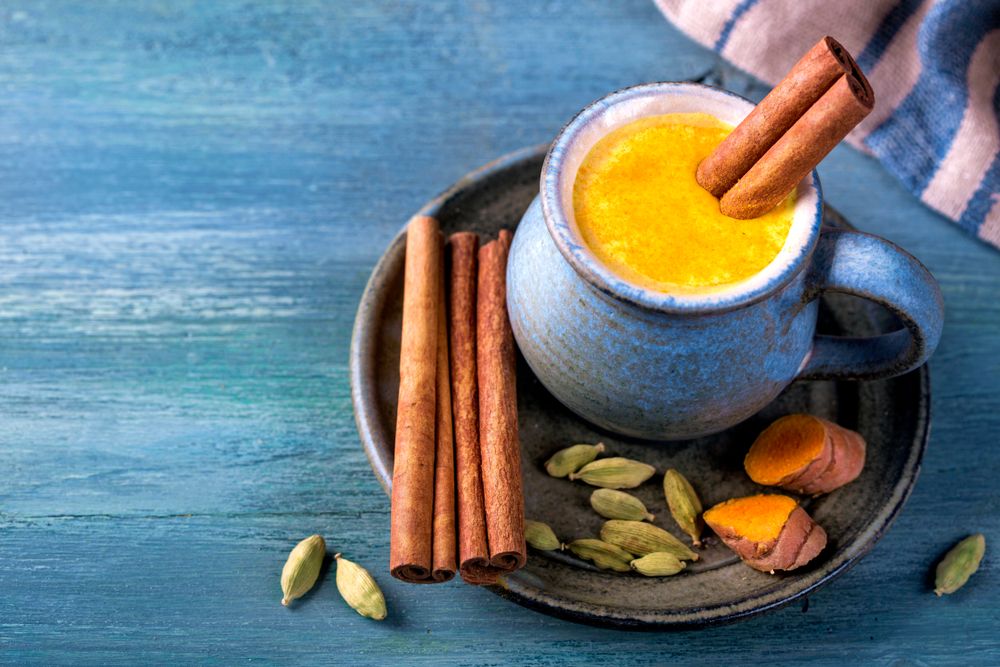
To enhance the sleep-enhancing benefits of your warm milk before bedtime, consider incorporating a touch of turmeric, ginger, and honey to create a comforting glass of golden milk. In addition to the sleep-supporting qualities derived from milk, such as tryptophan, magnesium, and potassium, you'll also enjoy the digestive soothing properties of ginger and the inflammation-fighting effects of curcumin.
While alleviating inflammation could potentially contribute to overall sleep improvement, turmeric might possess an additional attribute that promotes better sleep. An animal study conducted in July 2021, published in Molecular Nutrition and Food Research, discovered that turmeric extract increased non-rapid eye movement (non-REM) sleep in mice, resembling the effects of Doxepin, a medication used to treat insomnia. Although the direct impact of turmeric on human sleep has yet to be definitively determined, this finding may pave the way for further research in this area.

